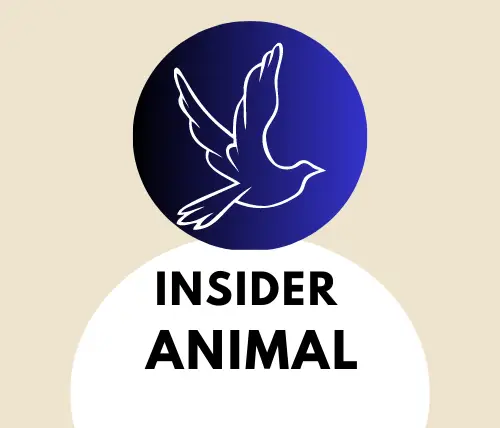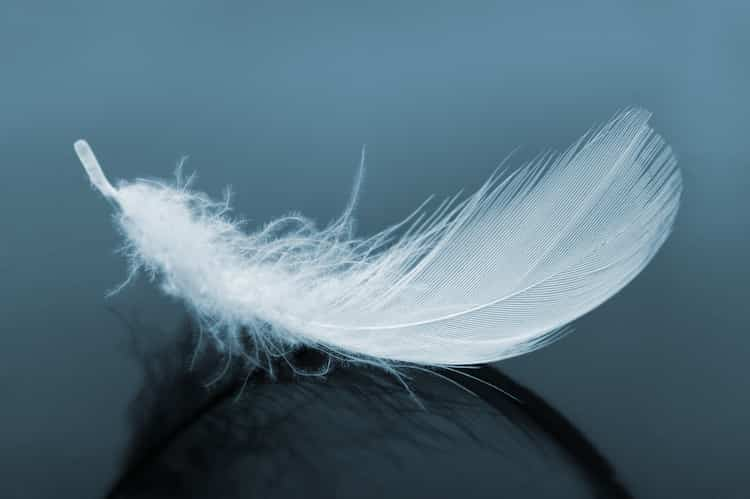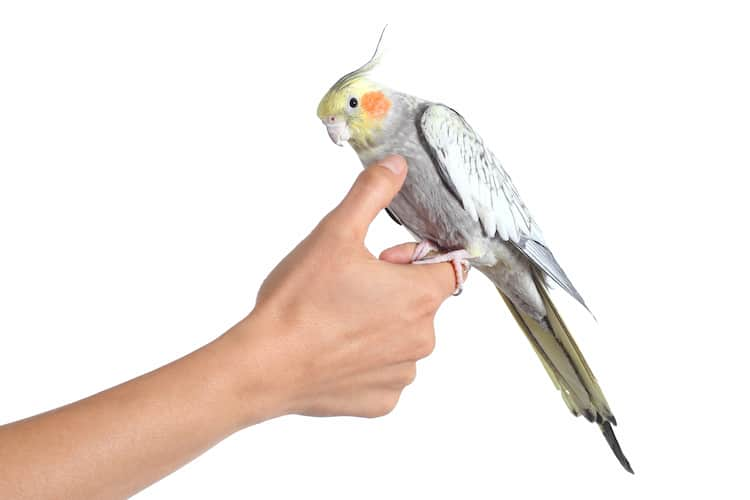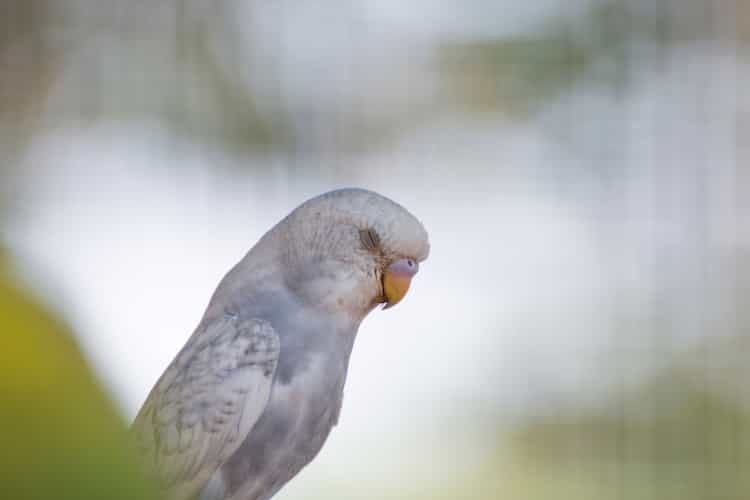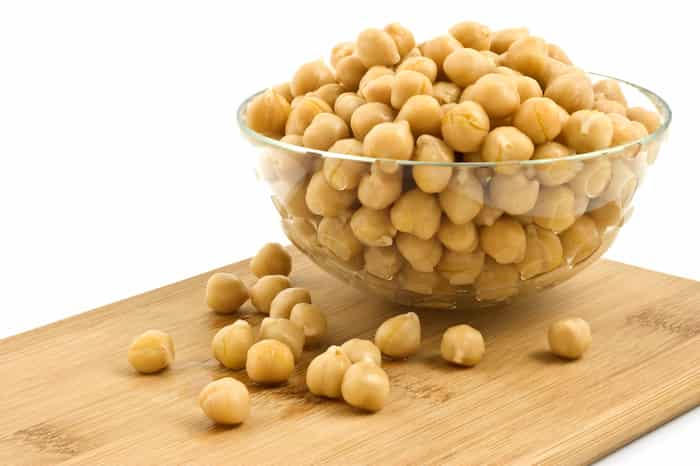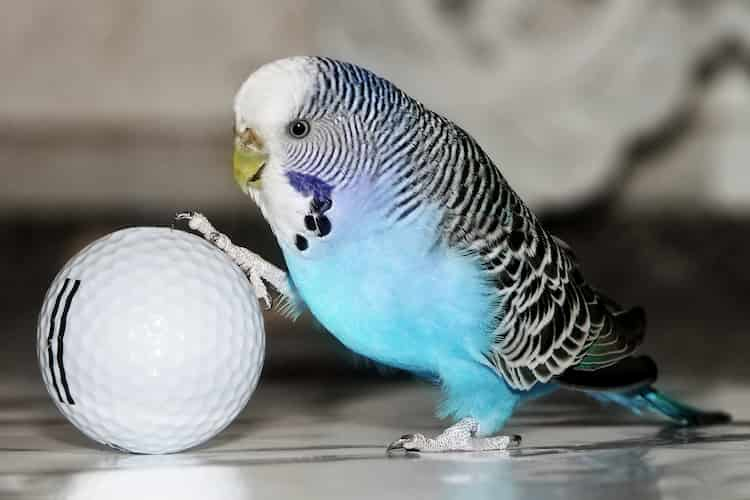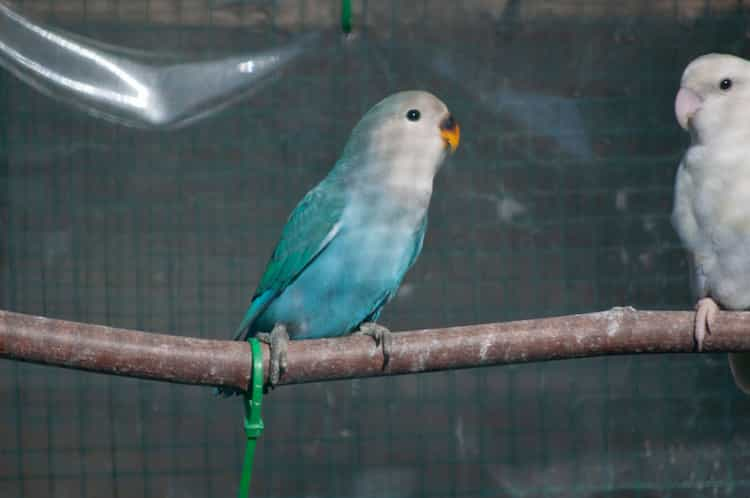Why is my Bird losing feathers? (13 Things You Must Know)
Losing feathers is one of the most common problems any bird will face in its lifetime. The majority of their health and behavioral issues are related in some way to feather loss. However, as a bird owner it’s important for you to have a suitable idea about the reason behind the feather loss.
Let’s quickly take a deep look at this topic and explore the 15 interesting things that you need to know about feather loss in birds.
1. Why do birds lose feathers?
Birds lose features due to normal molting, anxiety or stress-related problems, excessive preening activities, self feather destructive behaviors, or microbial infections. Shedding feathers by molting is a normal process in the development of the birds that allows the growth of newer feathers.
However often you may also notice that birds are losing feathers other than molting without showing any distress symptoms. Such instances of feather loss can be associated with a destructive behavior commonly found in birds called feather plucking.
If the feathers falling on the cage are damaged, broken, or look chewed up then it can be probable that the bird is having behavioral issues and the feather plucking phenomenon is a side product of that. Often that can be caused by excessive stress.
Pet birds can find it hard to adapt to even the slightest of the changes in their living environment, so things like changing the spot or introducing a new bird can lead to such issues.
2. Why do birds lose feathers on their head?
Birds lose head feathers at least once or twice a year as a part of the natural molting process. The bald spots will get filled with new feathers within 10 to 20 days. However losing feathers can also be caused by overgrooming, mite infestations, stress-related issues, nutritional issues, or certain diseases.
For example, birds like cardinals often lose feathers during the late summer and the early fall so it’s quite natural to notice bald spots in your bird”s head. However, it’s quite common to see it happening during other times of the year as well especially depending on the bird species.
Molting allows the growth of newer and healthier feathers. In most instances, the natural molting process does not lead to the existence of bald spots as the feather replacement happens in tandem, more like in a wave, so barren spots usually do not occur. But in certain birds, like the Cardinals or the Blue Jays, this can be seen to occur at certain times of the year.
However in case of molting, along with the head feather, you will also notice that feathers from all across the body are falling off and slowly are getting replaced by newer feathers, the bald spots will be restored with new feather growth within a week or two. Molting won’t be limited only to the head in most cases.
If feathers are only falling off only from the head then it can be a sign of feather mites infestation. Birds generally keep off such infestations from their body by preening activity. But the head is the only region of their body that can be a lot more vulnerable to such infestations as they cannot groom that part of the body by themselves properly.
3. Why is my bird losing feathers around his Neck?
Birds can lose feathers around their neck during the natural molting process or due to other reasons like mite infestations, nutritional deficiencies, stress, excessive preening activities, or certain diseases.
Often the loss of feathers around the neck can be happening either because of these reasons or owing to the combination of these reasons. Dietary deficiencies are a much more commonly seen reason behind abrupt feather loss in the birds that are living in the wild, who often suffer from adequate food resources.
4. Why Is My bird losing feathers on his chest?
Birds lose chest feathers as a part of the molting process. However, they can also lose chest feathers owing to viral or parasitic infections, stress, and anxiety, feather picking, lack of having a fun activity, or malnutrition.
Loss of chest hair is commonly seen in many birds including budgies, parrots, etc.
Viral infections can commonly occur in birds which can lead to aggressive feather loss in the chest. In such instances, the regrown hair will be irregularly shaped and the bird may also suffer from abnormal toenail or beak growth.
During such infections, you will also notice other health-related illnesses in the bird as viral infections can deeply affect the body’s immunity.
Signs can vary but common symptoms include diarrhea, vomiting, lack of physical activity, laziness, loss of appetite, etc. If you are under any kind of doubt regarding the health of the bird, you should immediately visit the vet.
5. Why do birds molt and lose feathers?
Molting in birds is completely a natural process that helps them in replacing older, worn-out hair with newer ones. It happens at least twice a year or more than that and occurs during weather-changing phases of the year.
6. How do I know when Birds is molting?
Most birds molt in the late summer or the fall and the spring season. During these times, the bird can act a bit defensive, may prefer to be quiet than it is usually is, can be more aggressive towards other birds or even to you. The bird can demonstrate irritable behaviors and can suffer from loss of appetite.
You will find loads of intact feathers all around the cage during the molting phase.
Molting generally ends up taking a lot of calories and hence most birds prefer to rest and be in darker conditions, throughout the day. Molting is quite a tough period in your bird’s life cycle and they suffer from mood swings during this sensitive period. So you need to handle your pet birdie with extra care and love in such times of the year.
7. How to treat feather loss in birds?
-
- Firstly you need to determine if the feather loss is a part of the molting process or some other problem. If it’s happening because of molting then feather loss will occur almost in all parts of the bird”s body. Also, it rarely leads to the creation of large bald spots. Generally, within a few weeks, even the tiny barren spots get replaced with new feather growth.
- Make sure the bird is medically fit: If the bird is experiencing feather loss along with certain health or behavioral problems then you need to give the vet a visit to make sure that the bird is not suffering from any disease.
- Try to keep the bird in a happy and peaceful environment: Make sure the bird has an adequate area to live and play. Have some toys in its living space and if possible play with the bird using the toys daily. The toys will keep them occupied with something in their free time. Dedicate a certain time of the day for such activity. Frustration, boredom, and depression can develop in pet birds if they are not looked after properly. To combat that you need to keep the pet bird occupied in regular fun activities. Also, keep the birdcage in relatively quieter locations of the house.
- The bird needs to get sufficient exposure to Sunlight and Moisture: Birds need the presence of higher humidity in the air to maintain the moisture levels of their skin. Otherwise, often low household moisture levels end up creating dry skin issues in birds.
Birds like all other animals require to have sufficient exposure to light and darkness. Try to make sure the room in which the bird is kept gets about 12 hours of light exposure and 12 hours of darkness.
If you cant keep them in darkness for 12 hours, try covering the cage with dark-colored birdcage coverings. Shortage of fresh air and sunlight can severely affect their mood which can lead to feather plucking or self-destructive behaviors.
Consulting with the vet you should either bathe the birds either daily or weekly as per their need. Certain birds like macaws love daily showers whereas others like parrots prefer weekly baths.
- Provide the bird with a well-balanced diet devoid of dyes or preservatives: It is always best to adhere to a diet chart given by the vet. Different birds have got different needs, even birds within the same species can have different variations in their diet.
Regular seed and table food-based diets can sometimes lead to certain nutritional deficiencies. Also, make sure that no preservatives are added as additives in the birdseed and other food items as that can lead to allergy or other problems.
8. Why is my Duck losing feathers?
Ducks can lose feathers due to molting, feather plucking, skin infections, parasitic infestations, lack of proper nourishment, staying in a dirty environment, other diseases, boredom, or depression.
Molting happens generally twice in ducks and there are lots of different duck varieties out there and they have their molting period at different times of the year. Also, the molting phase of wild birds varies with pet ducks.
Majorly they have two prominent molting timings, once in the summer and once in the late winter. They will lose most of their feathers but all of those will grow back within a few weeks.
During this time they can act a bit grumpy, lazy and can rest more than usual. Molting eats up a lot of calories so increasing the protein portion of their diety can help.
Pecking feathers of other ducks can be a concerning activity that can develop in a flock due to many reasons. It is important to separate the ones showing such activity as others can also pick up on this habit.
Pecking is quite common in birds and can develop from overcrowding, boredom, attraction to the feathers of other birds, the intention of bullying, etc.
If you find that your ducks are suffering from feather loss quite often then you should give the vet a visit as regular feather loss can also decrease the egg-laying capability of the female ducks.
9. Why is my chicken losing feathers?
Chicken can lose feathers due to extreme stress, malnutrition, natural molding process, preening, mating practices, pecking and bullying by other chickens, parasite infestation, or other kinds of diseases.
Chickens are commonly found to bully other chickens which can be a major concern in due course of time. Hence close attention must be given to detect such activities and to remove the troublesome chicken from the pack otherwise this can lead to much more devastating problems in the future. Such problems are frequently found to occur especially in the cases of overcrowding.
On the other hand, chickens that regularly mate with the roosters are often found to develop bald spots in their body. This is because the roosters generally grab the hens with their beaks during the mating process.
10. Why is my parakeet or cockatiel or lovebirds losing feathers?
Birds like lovebirds, parakeets, or cockatiels can lose feathers due to the normal molting process or due to other reasons like severe depression or frustration from boredom, malnutrition, skin infection, or other diseases.
If you are still unsure about why your budgie or lovebirds are losing feathers then you should give the weight a visit.
Going to the vet will help in running out many kinds of medical tests with the bird. That will you to tell whether the bird is having any health-related problem or any other behavioral issue.
Make sure the birds are having sufficient night sleep as insufficient sleep or overexposure to light at the night can end up impacting the overall health of a bird. For example, cockatiels are often found to be prone to night frights, so instead of leaving them under totally dark conditions, it will be better to have a dim night light in their room.
Spending sufficient bonding time with these birds is also an essential factor otherwise they may feel depressed and it can lead to self-destructive behaviors and loads of other troubles.
11. Is it normal for birds to lose feathers?
Birds naturally go through the process of losing feathers and replacing them with new ones once or twice a year. This process is called molting and it is just like humans losing hairs and then replacing them with near ones all like the shedding of skin of snakes.
12. Do birds lose feathers when stressed?
Birds can go through self-harming behavioral changes when they have excessive stress which may lead to excessive plucking of feathers from their body. The reason for the extreme stress can be the introduction of newer members in the cage, insufficient sleep, change of their staying place, sudden abrupt noises throughout the day, etc.
13. Do birds get moody when they molt?
Birds can get very moody during the molting period as they go through loads of hormonal changes & it’s a tough phase in their life. Also, they end up spending a lot of energy as a side effect of the molting process, so they can be aggressive at times, may sleep more, or be quiet more than usual.
It’s common to see them acting in a cranky manner or to be more stubborn. They can also feel itchy throughout the day as newer feathers are replacing the older ones.
You may also see them not receptive to touch as it can enhance the itching. You may need to change the diet a little bit and offer baths more frequently as it helps in minimizing the itching.
Thanks for reading so far, if you have any more queries then feel free to comment below and let us know.
